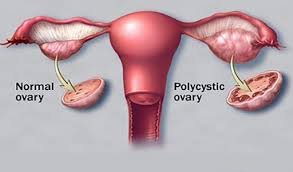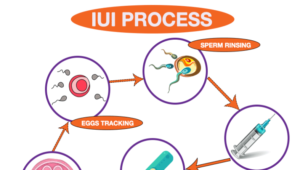Polycystic ovarian disorder or PCOD is a hormonal condition in women, which occurs due to increased levels of certain hormones like insulin and androgen. Today, 1 in every 10 women suffer from this condition. While it is not completely curable, it can be managed with proper medical treatment. If you neglect PCOD, it can have an adverse effect on your health and may also lead to other long-term health problems.
Symptoms of PCOD
Before we understand the long-term health problems of PCOD, let’s see the common signs and
symptoms. Remember, if you are suffering from PCOD, you may experience mild to severe
symptoms. Here, it is important to consult your healthcare practitioner immediately.
● Irregular or no periods
● Excess hair on the face and body
● Acne or skin tags
● Hair loss
● Fertility problems
● Stress, anxiety or depression
● Problems managing weight
● Irregular sleep patterns
5 Long-Term Health Problems of PCOD:
These are the main five health problems associated with PCOD. Take a look!
1.Infertility-
PCOS is a common cause of infertility in women. The hormonal imbalances associated with
PCOS can disrupt the normal ovulation process, leading to irregular or absent menstrual
periods. This irregularity can make it challenging for women with PCOS to conceive. However,
there are treatment options that can help you combat this. So, if you are facing fertility issues,
don’t hesitate to speak with your doctor today.
2.Type 2 Diabetes-
For women with PCOS, they are at an increased risk of developing insulin resistance, where the
body’s cells don’t respond effectively to insulin. This can lead to higher levels of insulin in the
blood, which, over time, may contribute to the development of type 2 diabetes. Hence, it is
crucial to maintain a healthy lifestyle.
3.Cardiovascular Disease-
PCOS is associated with several risk factors for cardiovascular disease. These include insulin
resistance, obesity (often central or abdominal obesity), elevated blood pressure, and abnormal
lipid profiles. All of these factors contribute to an increased risk of heart disease and stroke in
individuals with PCOS.
4.Endometrial Cancer-
Women with PCOS have a higher risk of developing endometrial (uterine) cancer. The hormonal
imbalances, particularly elevated levels of estrogen due to anovulation (lack of ovulation), can
lead to excessive growth of the endometrial lining, increasing the risk of cancer over time.
5.Mental Health Issues-
PCOS has been linked to an increase in mental health issues, including anxiety and depression.
The challenges associated with managing symptoms, body image concerns, and the impact on
fertility can contribute to emotional stress and mental health issues in individuals with PCOS.
It’s important to note that not every individual with PCOS will experience all of these long-term
health problems. The severity and combination of symptoms can vary widely among individuals.
Also, your lifestyle choices such as diet, exercise, and stress management can play a crucial
role in managing PCOS and reducing the risk of associated health problems.
Regular medical check-ups are a must here for addressing and minimizing the impact of these
long-term health concerns. If you suspect you have PCOS or are experiencing related
symptoms, talk to your gynecologist today!
To book an appointment with our expert gynecologist Dr. Kiranmayee contact at 9121459595





